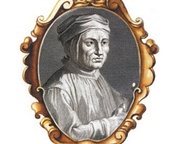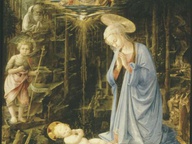Marubi archive. The photography ritual
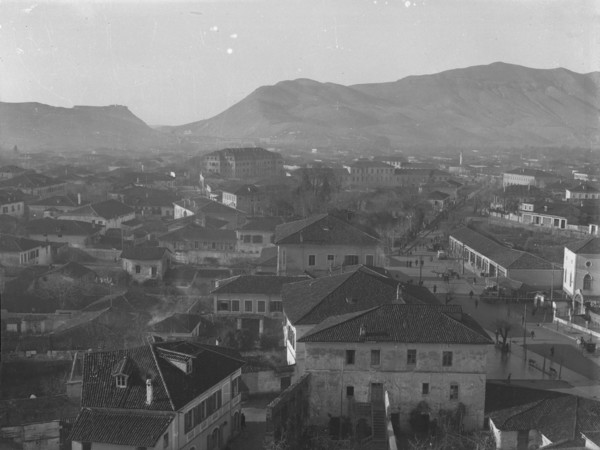
Shan Pici, View of Shkodra city, 1936
From 16 Novembre 2018 to 09 Dicembre 2018
Milan
Place: La Triennale di Milano
Address: viale Alemagna 6
Times: Tuesday – Sunday, 10.30 a.m – 8.30 p.m.
Responsibles: Zef Paci
Ticket price: Free entry
Telefono per informazioni: +39 02 724341
E-Mail info: info@triennale.org
Official site: http://www.triennale.org
Settled between the everyday life and the ritual, the images of the exhibition Marubi archive. The photography ritualcurated by Zef Pacipreserve the memory of more than one century of Albanian living. They depict a part of the photographic heritage of the Marubi Museum in Shkoder, the first photo museum in Albania, which will present at La Triennale di Milano – from November 16 to December 9, 2018– its first exhibition, in collaboration with MUFOCO and La Triennale.
Inaugurated in 2016, the Marubi Museum has an archive of over 500.000 negatives which portray families, citizens, servicepeople, politicians, merchants from Shkodra or others who happened to pass by, moments from the ordinary life as well as historical events from the half of the 19th century to the end of the 20th century. These images retrace the city life captured in its historical, social, cultural and antropological aspects through a photographic and artistic documentation which contributes to recreate to the present, more than one century of Albanian culture.
From this varied collection, the curator Zef Paci has made a selection of 169 images from the most important authors of the archive which in a sense reflects, what the photographers used to do in the real life. The ensemble of traces and fragments of life captured in the flow of the everyday life composes a narration through photographs, a journey through places, faces and human relations which shows the rites of passage immortalized by the photographic studio. Photography, intended as a ritual, has allowed us to investigate a community with its multiple stories and desires and give back to the visitors, the freshness of a multiple form and eclectic reality.
During the years, the contiguity of an accurate evidence has been provided by a dynasty of photographers founded by Italian Pietro Marubbi (which later changed to Marubi), born in Piacenza and emigrated in Albania. In 1856, in his early twenties, Pietro open a photography studio which becomes immediately a point of reference in Shkoder. As he did not have children, he adopts the sons of his gardener Rrok Kodheli and send them to Trieste to study photography.
After his death, the studio is inherited by Kel Kodheli who changes his surname to Marubi to honor his master. He later transmits his passion to his son Gege who studied at the Lumière brothers. What we note in the three generations of photographers is their dedication to observe the reality in a modern and aesthetic way.
In 1970, during the communist regime, Gege Marubi donates to the state the family negatives archive and is appointed as its administrator. The other photographers of the city- Pici, Jakova, Rraboshta e Nenshati – do the same. This is how the Marubi Phototeque was founded. Nowadays it boasts one of the most important photographic heritages in Europe.
Inaugurated in 2016, the Marubi Museum has an archive of over 500.000 negatives which portray families, citizens, servicepeople, politicians, merchants from Shkodra or others who happened to pass by, moments from the ordinary life as well as historical events from the half of the 19th century to the end of the 20th century. These images retrace the city life captured in its historical, social, cultural and antropological aspects through a photographic and artistic documentation which contributes to recreate to the present, more than one century of Albanian culture.
From this varied collection, the curator Zef Paci has made a selection of 169 images from the most important authors of the archive which in a sense reflects, what the photographers used to do in the real life. The ensemble of traces and fragments of life captured in the flow of the everyday life composes a narration through photographs, a journey through places, faces and human relations which shows the rites of passage immortalized by the photographic studio. Photography, intended as a ritual, has allowed us to investigate a community with its multiple stories and desires and give back to the visitors, the freshness of a multiple form and eclectic reality.
During the years, the contiguity of an accurate evidence has been provided by a dynasty of photographers founded by Italian Pietro Marubbi (which later changed to Marubi), born in Piacenza and emigrated in Albania. In 1856, in his early twenties, Pietro open a photography studio which becomes immediately a point of reference in Shkoder. As he did not have children, he adopts the sons of his gardener Rrok Kodheli and send them to Trieste to study photography.
After his death, the studio is inherited by Kel Kodheli who changes his surname to Marubi to honor his master. He later transmits his passion to his son Gege who studied at the Lumière brothers. What we note in the three generations of photographers is their dedication to observe the reality in a modern and aesthetic way.
In 1970, during the communist regime, Gege Marubi donates to the state the family negatives archive and is appointed as its administrator. The other photographers of the city- Pici, Jakova, Rraboshta e Nenshati – do the same. This is how the Marubi Phototeque was founded. Nowadays it boasts one of the most important photographic heritages in Europe.
SCARICA IL COMUNICATO IN PDF
COMMENTI

-
 Dal 31 gennaio 2024 al 04 maggio 2025
Fermo | Palazzo dei Priori
Dal 31 gennaio 2024 al 04 maggio 2025
Fermo | Palazzo dei Priori
-
 Dal 20 dicembre 2024 al 04 maggio 2025
Fermo | Palazzo dei Priori
Dal 20 dicembre 2024 al 04 maggio 2025
Fermo | Palazzo dei Priori
-
 Dal 20 dicembre 2024 al 04 maggio 2024
Gorizia | Palazzo Attems Petzenstein
Dal 20 dicembre 2024 al 04 maggio 2024
Gorizia | Palazzo Attems Petzenstein
-
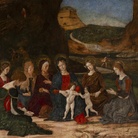 Dal 18 dicembre 2024 al 18 dicembre 2024
Venezia | Museo Correr
Dal 18 dicembre 2024 al 18 dicembre 2024
Venezia | Museo Correr
-
 Dal 14 dicembre 2024 al 02 marzo 2025
Palermo | Palazzo Abatellis
Dal 14 dicembre 2024 al 02 marzo 2025
Palermo | Palazzo Abatellis
-
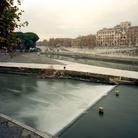 Dal 12 dicembre 2024 al 23 febbraio 2025
Roma | Palazzo Altemps
Dal 12 dicembre 2024 al 23 febbraio 2025
Roma | Palazzo Altemps
